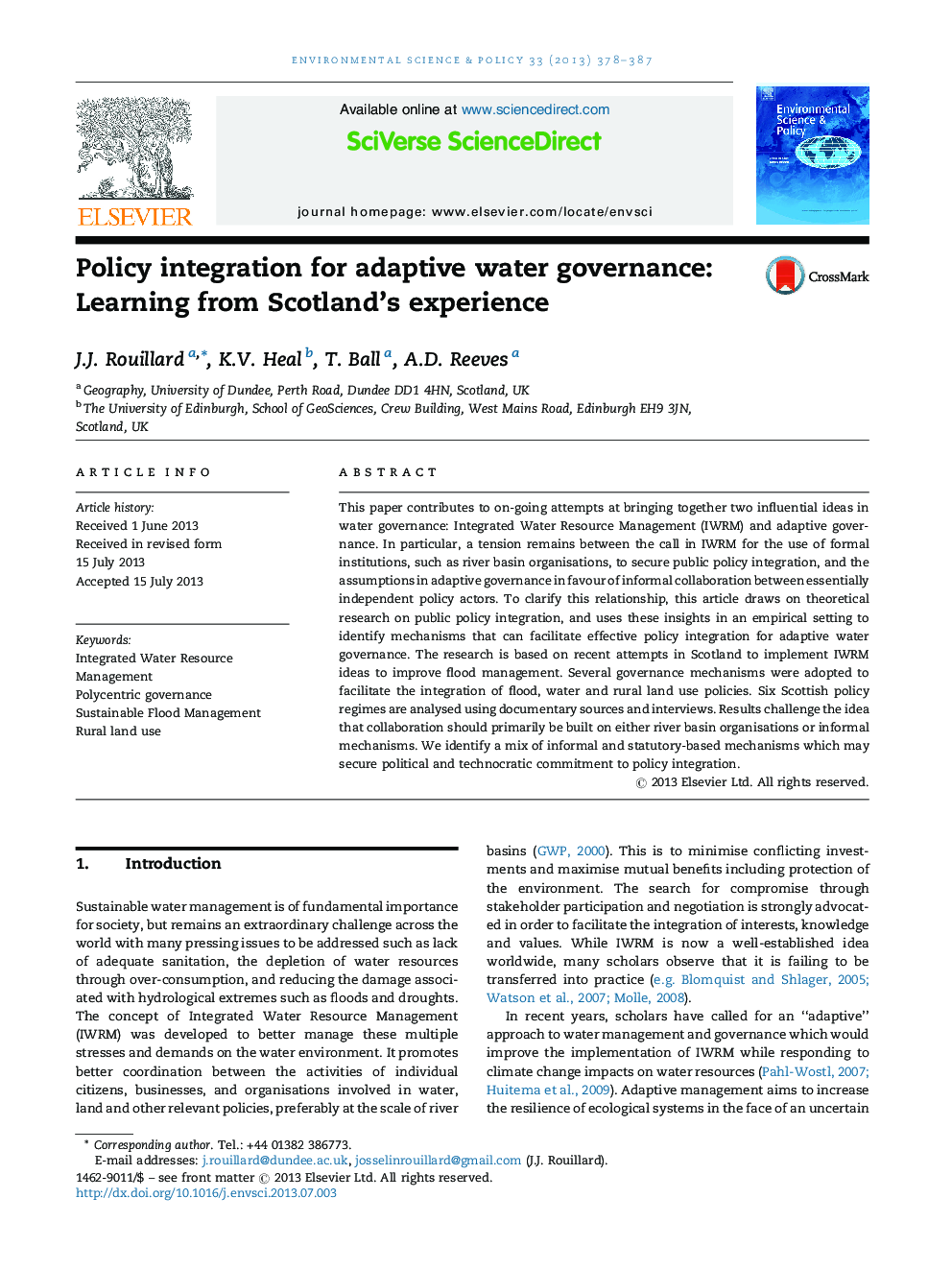| Article ID | Journal | Published Year | Pages | File Type |
|---|---|---|---|---|
| 1053669 | Environmental Science & Policy | 2013 | 10 Pages |
•We strengthen theories on adaptive governance with policy integration theory.•Polycentric policy regimes can support adaptive IWRM.•Participatory processes help overcome limitations of polycentric governance.•Informal participatory processes may not be sufficient to ensure collaboration.•Statutory procedures may create inter-dependence and secure commitment for change.
This paper contributes to on-going attempts at bringing together two influential ideas in water governance: Integrated Water Resource Management (IWRM) and adaptive governance. In particular, a tension remains between the call in IWRM for the use of formal institutions, such as river basin organisations, to secure public policy integration, and the assumptions in adaptive governance in favour of informal collaboration between essentially independent policy actors. To clarify this relationship, this article draws on theoretical research on public policy integration, and uses these insights in an empirical setting to identify mechanisms that can facilitate effective policy integration for adaptive water governance. The research is based on recent attempts in Scotland to implement IWRM ideas to improve flood management. Several governance mechanisms were adopted to facilitate the integration of flood, water and rural land use policies. Six Scottish policy regimes are analysed using documentary sources and interviews. Results challenge the idea that collaboration should primarily be built on either river basin organisations or informal mechanisms. We identify a mix of informal and statutory-based mechanisms which may secure political and technocratic commitment to policy integration.
